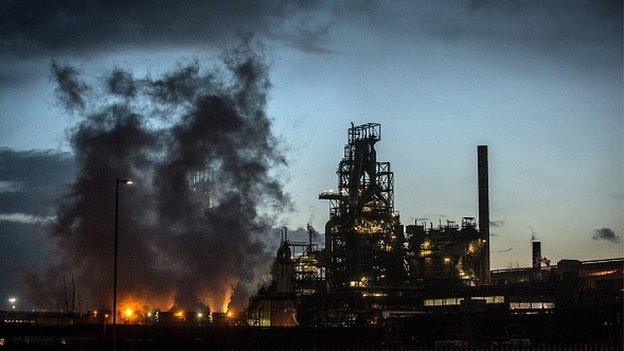Tata Steel mothballs part of Llanwern plant, cutting 250 jobs
- Published
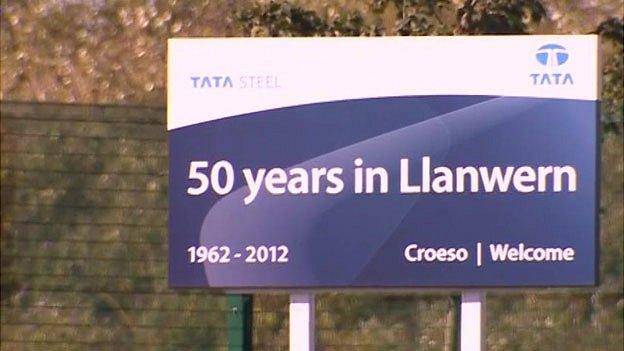
The union says those losing their jobs are mostly younger workers
Tata Steel is to mothball part of its plant in Newport for the third time in six years with the loss of hundreds of jobs.
Community union said 250 jobs are to go, mainly at Llanwern, which employs 1,500 workers.
Tata said it needed to "reduce costs and focus on manufacturing higher-value products".
The Welsh government said it would look at how it could help Tata, calling the news "extremely disappointing".
A spokesman added: "We have repeatedly lobbied the UK government for urgent action to address issues such as high energy costs that are disadvantaging the steel industry across the UK against our overseas competitors."
Tata would not confirm the exact number of job losses but said they were mainly agency and contract workers.
The GMB union called it "more bad news for the steel industry" while Unite said job losses were "very disappointing".
Dr Kath Ringwald, of University of South Wales in Newport, explains Tata's difficulty
This is the third time in six years that parts of the Llanwern steel processing plant have been mothballed because of market conditions.
On the previous occasions, work was stopped for between nine and 10 months.
Community union, which has the most members at Llanwern, acknowledged Tata was under "huge pressure to reduce costs" but said laying off employees was "extremely regretful".
The job losses will involve fixed-term contract and agency workers although the union said these included people who had been working at the plant for a number of years.
Sue Lewis, regional organiser, said: "We saw these mainly younger employees as the future of Llanwern and the steel industry in Newport so we're devastated at these job losses.
"We also have to remember that for every worker employed at Tata, three jobs outside also depend on those workers, so it's the ripple effect throughout the community."
It comes a year after the company announced 400 jobs were to go at its steelmaking plant in Port Talbot, Neath Port Talbot.
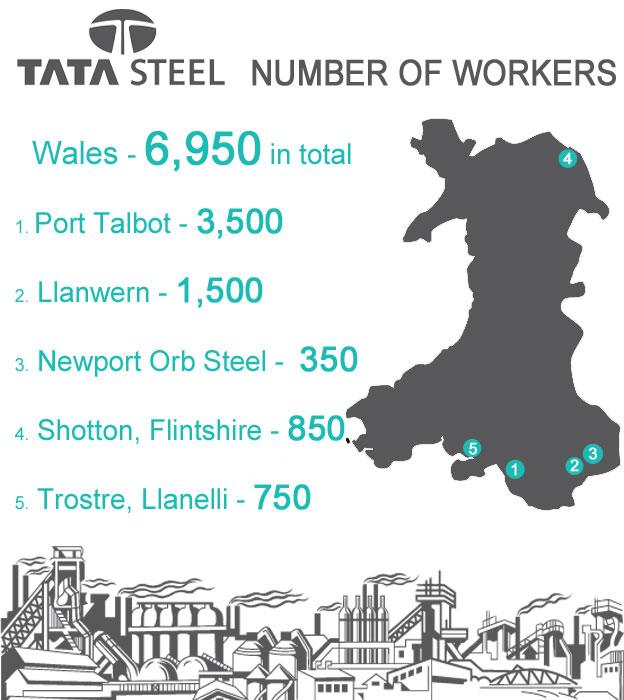
Tata has confirmed some of its coil processing facilities, including the hot strip mill, will "come out of production" but added that they would be retained so they can be "restarted in more favourable market conditions".
The company also said employees at Llanwern would be redeployed within the business.
Tata currently employs 6,950 workers at five plants in Wales.

BBC Wales business correspondent Brian Meechan explains more about what the announcement means
Analysis by Brian Meechan, BBC Wales business correspondent
Steelmaking is a tough business. It faces two main issues. Firstly, domestically there is the cost of producing steel in the UK which is driven in no small part by energy costs, which are higher than other parts of Europe.
We also need to look at the price of steel from around the world. We've seen with the Chinese economy slowing down that more steel is available from China as it's not needed as much there. That steel is making its way here and being bought because it is cheaper, although not the same quality. This is having an impact not just on steel manufacturers in the UK but across Europe.
Tata has made a huge amount of investment including a new blast furnace in Port Talbot which makes it cheaper to produce steel. A lot of the staff - as opposed to the fixed term workers - from Llanwern have been moving there. Processing work will remain at Llanwern.

WHAT HAPPENS AT LLANWERN?
Hot strip mill - this reheats semi-finished slabs of steel to near melting point and then rolls them thinner and longer and then they are sold as coils. This is being mothballed.
Pickle line - this removes oxide scale which forms when the steel is rolled. It is also rinsed and dried before finishing. One of Llanwern's two lines will close.
Cold strip mill - this process compresses and squeezes steel at room temperature, reducing its thickness and improving its surface and strength. This is being mothballed.
Galvanising line - a coating of zinc is applied for steel for the car market and products ranging from washing machines to DVD players. Llanwern invested £3.6m on its Zodiac line a couple of years ago. This is staying open.
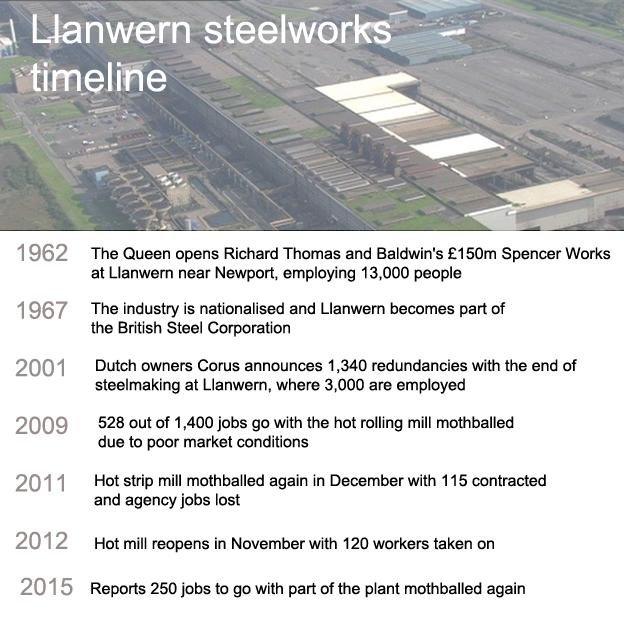

UK Business Minister Anna Soubry MP said: "There is no doubt that the steel industry is facing very challenging market conditions, with global overcapacity, steep falls in prices and currency devaluations.
"However the government continues to work closely with the sector to provide help where we can."
Welsh Conservatives have labelled reports of huge job losses at Tata's site in Llanwern "shocking" and "devastating".
Newport East assembly member John Griffiths said he hoped the announcement was a temporary measure.
"We want investment from Tata and a long-term view on expansion and growth here," he said.
"I'm hoping it is indeed mothballed rather than removed all together."
- Published1 July 2014
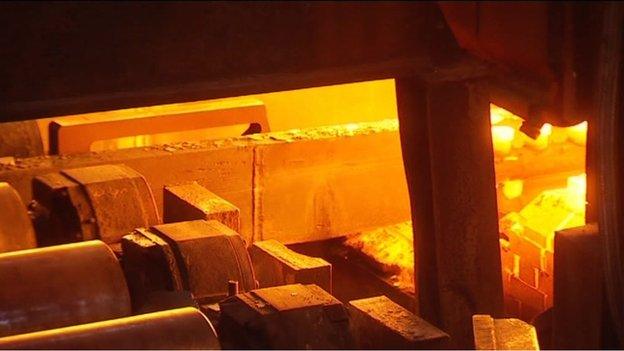
- Published2 December 2011
- Published4 November 2011
- Published13 September 2011
- Published5 June 2015
